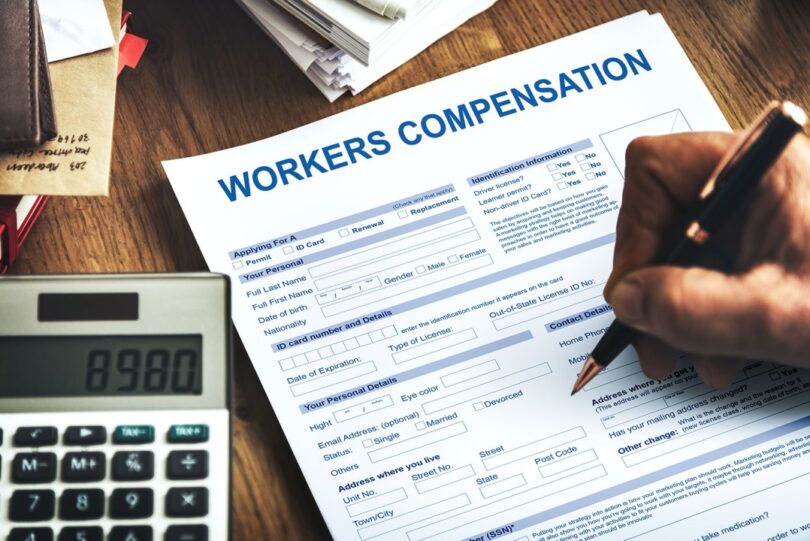Advertisements
In today’s complex work environment, workplace safety and financial protection are more critical than ever. Whether you’re a small business owner, HR manager, or employee, understanding the importance of workers’ compensation insurance is essential. It not only provides financial security to injured workers but also protects employers from costly lawsuits and operational disruptions.
This article will explain what workers’ compensation is, how it works, what it covers, and why it’s a non-negotiable investment for every business.
What is Workers’ Compensation?
Workers’ compensation is a form of insurance that provides medical benefits and wage replacement to employees injured on the job. In exchange for these benefits, employees typically waive their right to sue their employer for negligence. The system is designed to protect both parties by ensuring timely support for injured workers and legal protection for businesses.
Why Workers’ Compensation is Essential
1. Legal Compliance
Most U.S. states require employers to carry workers’ compensation insurance—even if they have just one employee. Failing to maintain coverage can result in fines, penalties, and legal action.
2. Employee Protection
Workers’ comp ensures that employees receive:
Advertisements
- Medical care for work-related injuries or illnesses
- Wage replacement during recovery periods
- Disability benefits, if applicable
- Rehabilitation services and job retraining
- Death benefits for surviving dependents
3. Business Continuity
Without workers’ compensation, businesses may face:
- Expensive lawsuits
- Out-of-pocket medical costs
- Loss of employee trust
- Damaged reputation
Carrying proper insurance minimizes these risks and keeps your business operating smoothly.
What Does Workers’ Compensation Cover?
A comprehensive workers’ compensation policy typically includes coverage for:
- Accidents and injuries on the job (e.g., slips, falls, machinery-related injuries)
- Occupational illnesses caused by workplace exposure (e.g., respiratory issues, hearing loss)
- Lost wages during temporary or permanent disability
- Ongoing medical care and rehabilitation
- Death benefits to the employee’s family in the event of a fatal workplace incident
What Workers’ Compensation Does Not Cover
There are limits to what workers’ comp will pay for. Typically excluded are:
- Injuries sustained while off duty or not related to work
- Self-inflicted injuries
- Injuries resulting from substance abuse or criminal activity
- Independent contractors or freelancers (unless separately covered)
Employers should clearly understand these exclusions to avoid claims disputes.
High-CPC Keywords Included in This Article
To improve visibility and monetization, this article includes high-cost-per-click insurance-related keywords such as:
- Workers’ compensation insurance for small business
- What does workers’ comp cover
- How to file a workers’ compensation claim
- Employer liability and workers’ compensation
- Compare workers’ comp insurance quotes
- State workers’ compensation laws
- Workers’ compensation insurance benefits
How to Choose the Right Workers’ Compensation Policy
1. Understand Your State’s Requirements
Each state has unique laws and regulations governing workers’ compensation. Some states offer state-funded insurance, while others require private policies.
2. Assess Workplace Risks
The type of industry, nature of the work, and number of employees all affect your insurance needs and premium rates.
3. Compare Providers and Coverage
Use trusted insurance marketplaces or brokers to get multiple quotes. Focus on:
- Coverage limits
- Claims process
- Customer support
- Premium flexibility
4. Consider Value-Added Services
Some providers offer additional benefits like workplace safety programs, return-to-work strategies, and claims assistance—features that can reduce costs and enhance employee well-being.
Benefits for Employers and Employees
For Employers:
- Legal protection and compliance
- Financial stability during claims
- Improved employee morale and trust
- Reduced risk of lawsuits
For Employees:
- Prompt access to medical care
- Guaranteed partial income during recovery
- Long-term disability support
- Peace of mind on the job
Conclusion
Workers’ compensation insurance is not just a regulatory requirement—it’s a smart business strategy that fosters a safe, productive, and legally protected workplace. For employers, it provides essential liability coverage and business continuity. For employees, it delivers peace of mind and financial support in times of need.
Whether you’re starting a business or re-evaluating your current coverage, take the time to understand your state requirements, assess your risks, and choose a provider that offers robust protection and reliable support. In today’s competitive business landscape, investing in workers’ compensation is investing in your people—and your future.
Would you like help comparing top-rated workers’ comp providers or finding quotes tailored to your industry and location? I can help guide you through that process.
Advertisements






